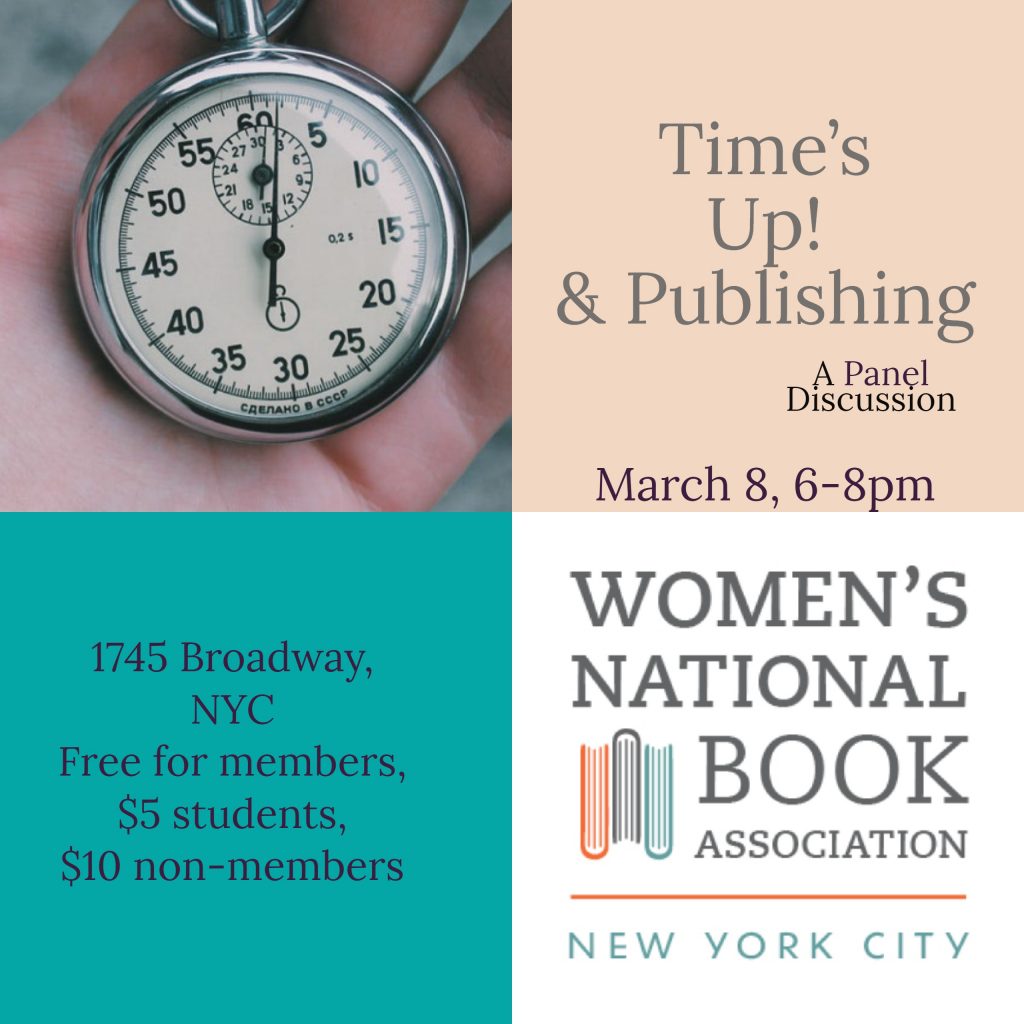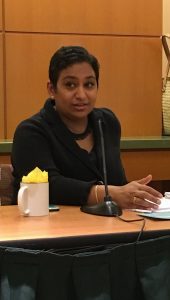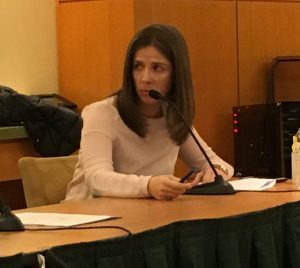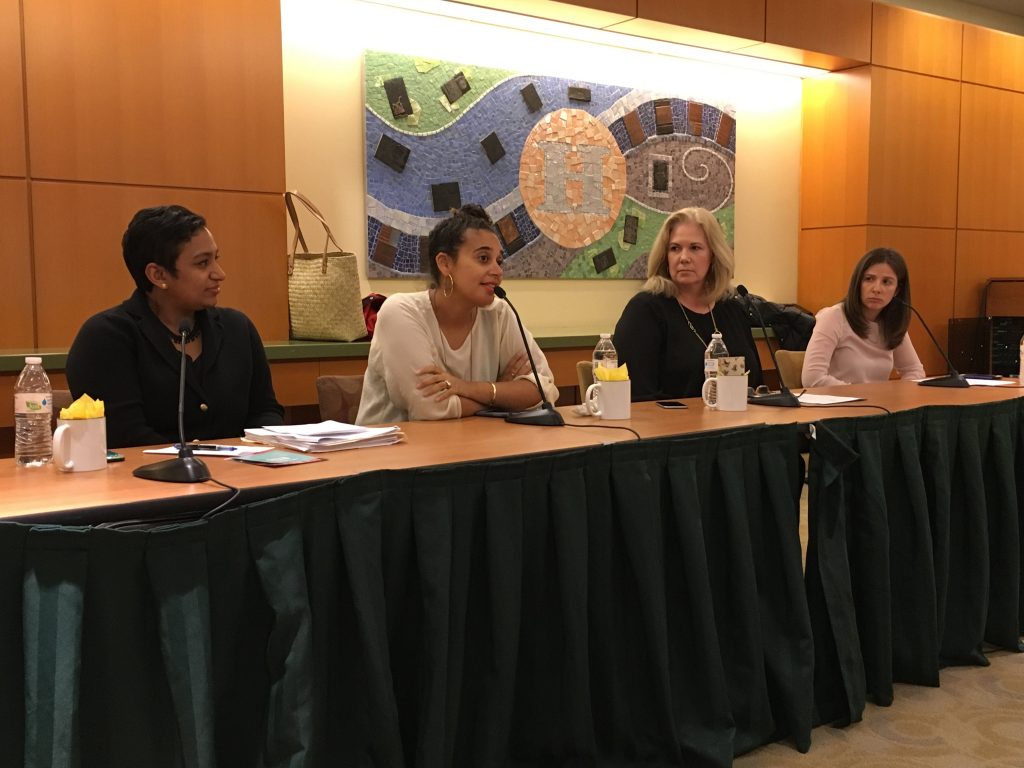 As the Time’s Up and #MeToo movements expand into the Publishing industry, the WNBA hosted an active Time’s Up in Media and Publishing Panel at Penguin Random House to discuss how women can respond.
As the Time’s Up and #MeToo movements expand into the Publishing industry, the WNBA hosted an active Time’s Up in Media and Publishing Panel at Penguin Random House to discuss how women can respond.

Sunu Chandy
Photo Credit Hannah Bennett
The panelists at the March 8th event included Sunu Chandy, the legal director of the National Women’s Law Center, Paige McInerney, the vice president of human resources at Penguin Random House, and Collier Meyerson, a journalist and Knobler Fellow at the Nation Institute. The moderator of the panel was Rachel Deahl, the news director of Publisher’sWeekly.
A primary topic of conversation was what to expect when filing a harassment complaint in the workplace. According to McInerney, the first step is to interview the person making the claim, followed by additional interviews with others in the company. These secondary interviews may or may not be discussed with the individual making the claim.

Paige McInerney
Photo Credit Hannah Bennett
According to Chandy, this is the aspect of the process that can most dissatisfy the individual making the complaint, adding that it may cause them to “lose faith with the HR system.”
For McInerney and Chandy, an even more prevalent concern is what constitutes sexual harassment, particularly in the workplace. According to Chandy, the legal definition is a behavior that is either “severe or pervasive.” However, the legal definition, a company’s policy, and society’s opinion can be vastly different, leading to confusion about whether a behavior legally counts as harassment.
Both Chandy and McInerney encouraged women to speak with HR as soon as they feel uncomfortable in the workplace, even if they are not sure whether the behavior meets the legal definition of harassment.
“It doesn’t need to rise to any level if it makes you uncomfortable,” McInerney said. “If [the behavior] is big enough that you’re thinking about it, it’s big enough to go to HR.”
According to Collier, the question about what constitutes sexual harassment expands into journalism, where there is a rift between what a source may believe is sexual harassment and the legal definition.

Rachel Deahl
Photo Credit Hannah Bennett
Collier added that speaking to a journalist can be an empowering alternative to going through the legal process, but she emphasized that a journalist will ask a lot of “uncomfortable questions” as part of their due diligence, and there is always a risk of negative public backlash.
“As a survivor, it’s a good idea to go to a journalist, one that you trust with your story, but to know that all of their questions are for your own safety,” Collier said. “A buttoned-up story is the best story.”
All three panelists encouraged people to remain vocal and to take advantage of the resources offered them, whether they are through the legal system, human resources departments, or through the media. According to McInerney, increased awareness of these resources is one of the greatest successes of the Time’s Up and #MeToo movements.
“There is in book publishing, wonderfully, a really good support system, and don’t be afraid to tap into that,” McInerney said. “That’s one of the best things to come out of this movement, that people do feel supported.”

Chandy, Meyerson, McInerney, and Deahl
Photo Credit Hannah Bennett




